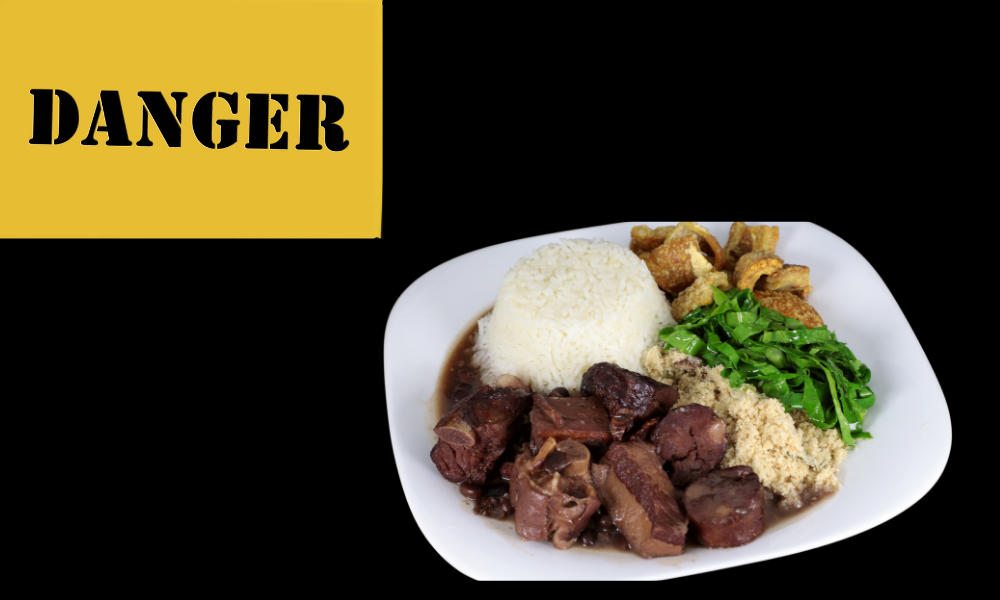Competitive athletes train and compete at a high level in their chosen sport. Proper sports nutrition is a crucial aspect of athletic performance, as it provides the necessary fuel and nutrients for the body to perform at its best. This article will explore the effects of high-fat meals on athletic performance and overall health.
High fat meals and athletic performance
High fat meals can have a negative impact on athletic performance for several reasons. First, high fat intake can lead to fluctuating energy levels. While fat is an important energy source, it is slower to digest than carbohydrates, which can lead to a slower release of energy. This can be especially problematic for athletes who require sustained energy for prolonged periods, such as during endurance events.
High fat intake can impact recovery time and endurance. When the body is subjected to intense physical activity, it requires adequate amounts of carbohydrates to replenish glycogen stores and aid in muscle repair. If glycogen stores are not adequately filled, it can lead to decreased endurance and longer recovery.
Besides, high fat meals can also increase the risk of weight gain and reduced mobility. While fat is necessary for proper bodily function, excess intake can increase body fat, negatively impacting mobility and performance.
Health risks of high fat meals

High fat meals can seriously affect athletes in terms of performance and overall health. Consuming a diet high in fat can lead to several negative health outcomes, including an increased risk of heart disease, excessive body weight, type 2 diabetes, and certain types of cancer.
- One of the primary health risks of high fat meals for athletes is an increased risk of heart disease. Fat, particularly saturated and trans fats, can raise cholesterol levels and contribute to plaque buildup in the arteries. This can lead to a higher risk of heart attack and stroke.
- High fat intake can also increase the likelihood of developing type 2 diabetes. This is because fat interferes with the body’s ability to properly use and store glucose, leading to high blood sugar levels. Type 2 diabetes is a severe health condition that can lead to various complications, including nerve damage, blindness, and kidney disease.
- Limit saturated fat and trans fat in fatty foods like cheese, butter, meat, and whole milk. Not only that, but Athletes should also minimize their high-fat food intakes, such as chips, fried foods, biscuits, cakes, and pastries. These foods intake will increase fat in your body rather than burning fat. Apart from that, you should be cautious about your high-protein diets as these carry heavy fat that can cause heart disease or osteoporosis.
- In addition to heart disease and type 2 diabetes, high fat intake has also been linked to an increased risk of certain types of cancer. These include breast, prostate, and colon cancer.
It is important for athletes to be aware of the health risks associated with high fat meals and to focus on a balanced and nutrient-rich diet. This includes incorporating complex carbohydrates, protein, and healthy fats into their diet. By fueling their bodies with the proper nutrients, athletes can optimize their performance and reduce their risk of negative health outcomes.
Alternative sources of fuel for athletes

So, what can athletes do to fuel their bodies properly? Carbohydrates are a primary source of energy for the body and should be the primary focus of an athlete’s diet. Carbohydrates are also an important source of energy for your brain.
Blood glucose is also a carbohydrate found in the blood, providing the brain with adequate energy. That’s why it is important to maintain adequate blood glucose levels during exercise to maximize athletic performance. Complex carbohydrates, such as whole grains and vegetables, provide sustained energy and aid in muscle repair.
Protein is also an essential nutrient for athletes, as it is necessary for muscle repair and growth. Good protein sources include lean meat, poultry, fish, beans, and dairy products.
Incorporating healthy fats into the diet is also significant, as they provide essential fatty acids and aid in absorbing specific vitamins and minerals. Healthy fats will help you get adequate energy and lose weight.
Good sources of healthy fats include avocados, nuts, and olive oil. Other healthy fat sources include unsaturated fat found in most fish, nuts, seeds, and vegetable oils. While you have a well-planned diet menu, you don’t have to go for nutritional supplements.
Pay attention to drinks, and take adequate fluid. Drinking adequate liquid before, during, and after intense and prolonged exercise is essential. Water is a suitable and easily available drink, but sports drinks can be a better option, especially for warm climates or endurance events. Because sports drinks contain sodium that helps absorption.
Conclusion
High fat meals can have a negative impact on athletic performance and overall health. Competitive athletes should focus on a balanced, nutrient-rich diet that includes complex carbohydrates, protein, and healthy fats. By fueling the body with the proper nutrients, athletes can optimize their performance and reduce the risk of negative health consequences.







